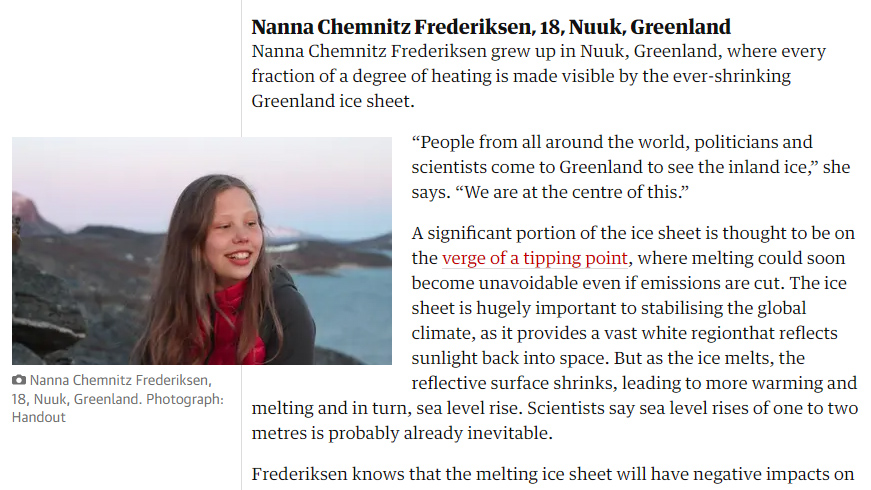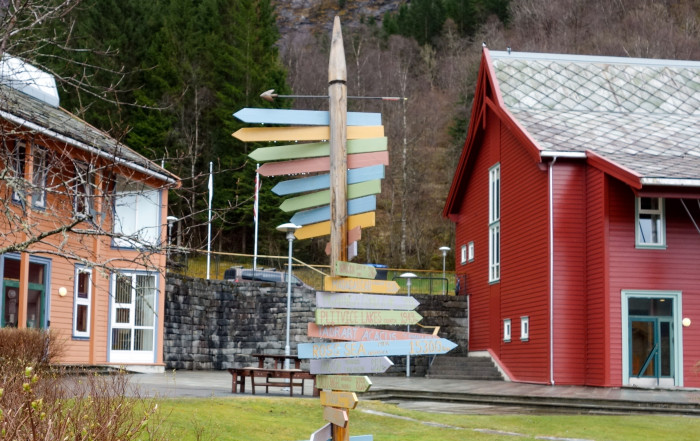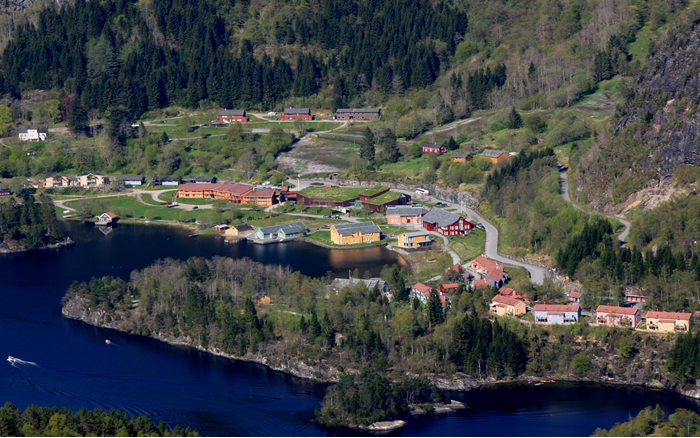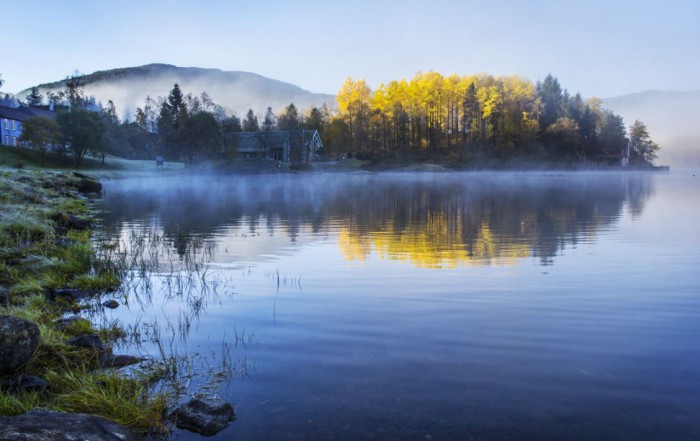“People from all around the world, politicians and scientists come to Greenland to see the inland ice,” she says. “We are at the centre of this.”
A significant portion of the ice sheet is thought to be on the verge of a tipping point, where melting could soon become unavoidable even if emissions are cut. The ice sheet is hugely important to stabilizing the global climate, as it provides a vast white region that reflects sunlight back into space. But as the ice melts, the reflective surface shrinks, leading to more warming and melting and in turn, sea level rise. Scientists say sea level rises of one to two metres is probably already inevitable.
Frederiksen knows that the melting ice sheet will have negative impacts on communities across Greenland, especially in northern settlements such as Qaanaaq where permafrost melting is destabilizing homes and roads and impacting how fishers and hunters operate.
But her real concern lies on the impact it will have globally. “I am not so scared of what the effects of the melting of ice in Greenland will be,” Frederiksen says, “It scares me what effect it can have for the rest of the world.”
Latest News
Response to COVID19
FRIDAY, MARCH 27th. Ms Jo Loiterton Acting Rektor These turbulent times are stressful for everyone, but also provide the space and opportunity to be the best versions of ourselves together. At Red Cross Nordic [...]
RESPONSE TO COVID-19 UPDATE
WEDNESDAY, MARCH 18th As far as we know, to date, no current UWC RCN student or staff member has been infected with the Covid-19 virus. As for all other sectors, changes within education have [...]
RCN – RESPONSE TO COVID-19 – March13th
UPDATE - FRIDAY, MARCH 13th After careful consideration and consultation we have decided to keep campus open for both generations of students should they choose to remain. As far as we know, to date, [...]




